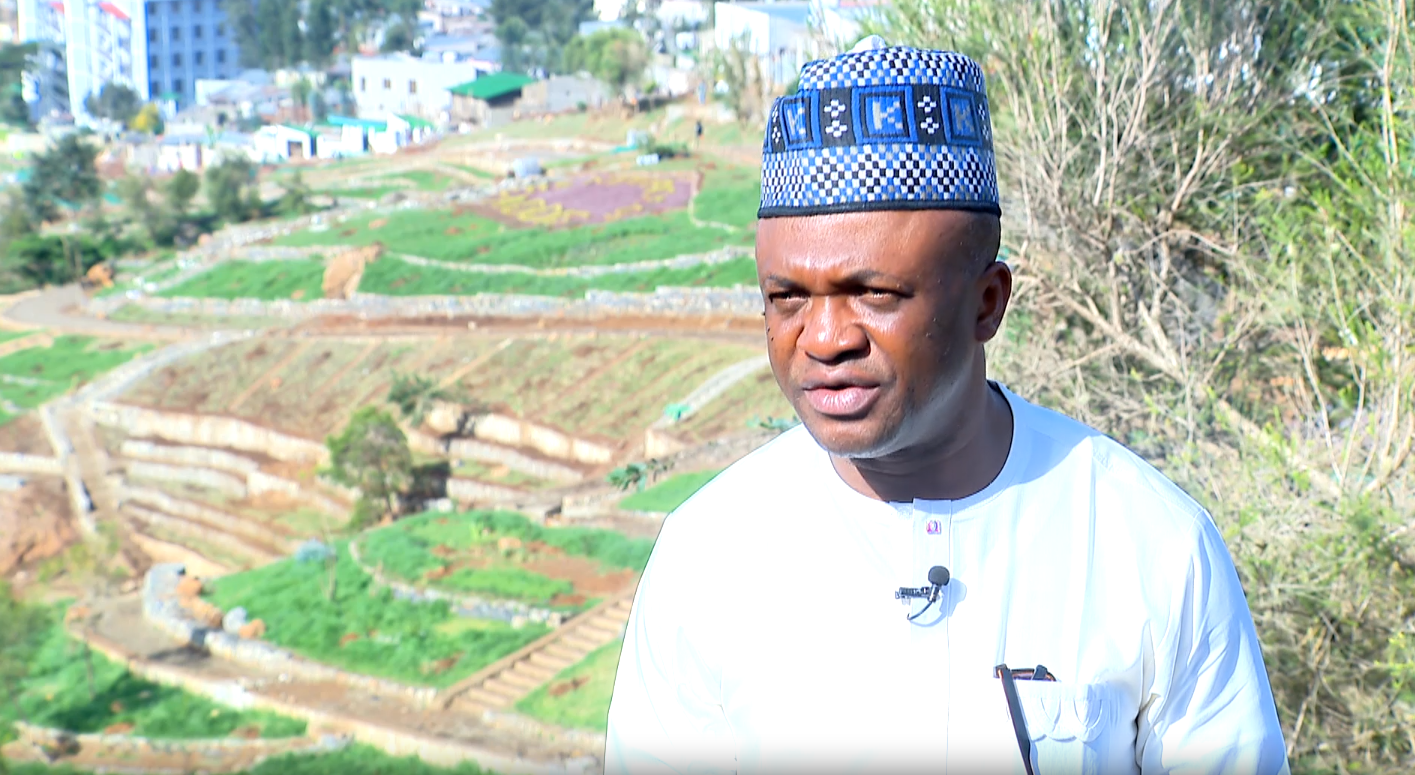Green Legacy Initiative of Ethiopia Model for Other African Nations to Follow: Nigerian Official - ENA English
Green Legacy Initiative of Ethiopia Model for Other African Nations to Follow: Nigerian Official

Addis Ababa, July 30, 2025 (ENA) – Ethiopia’s Green Legacy Initiative (GLI), is a highly commendable environmental effort and stands as a model worthy of emulation by other African nations, Senior Special Assistant to Nigeria’s President, Kingsley Uzoma said.
The Senior Special Assistant to the President of Nigeria on Agribusiness and Productivity Enhancement, Dr. Kingsley Uzoma, told the Ethiopian News Agency that the Green Legacy Initiative will have huge benefits for Ethiopia and Africa as a whole.
What the Prime Minister doing is not only addressing the climate change issues—it’s also addressing the status of the nation and food security. "Because, as I can see, some of the trees are also economic trees: avocado, mango. So you are like using one stone to kill multiple birds—to tackle climate change, to increase oxygen concentration."
Launched in June 2019 by Prime Minister Abiy Ahmed, Ethiopia’s Green Legacy Initiative aims to restore degraded land, expand forest cover, and mitigate the effects of climate change.
On June 27, 2025, Prime Minister Abiy Ahmed, joined by Nigerian Vice President Kashim Shettima, diplomatic dignitaries, and senior government officials, officially launched this year’s Green Legacy Initiative.
The 2025 campaign, held under the theme “Renewal Through Planting,” unveiled an ambitious target to plant 7.5 billion tree seedlings across the country.
Over the past six years, the nation through its Green Legacy Initiative has successfully planted 40 billion seedlings, a feat that has garnered international praise as a model to be replicated in other regions of the globe.
In an exciting development, the country is set to launch a campaign tomorrow aimed at planting 700 million seedlings in a single day, as part of this year's planting season.
Senior Special Assistant to Nigeria’s President, Kingsley Uzoma said tt’s a highly laudable initiative of the Prime Minister of Ethiopia, worthy of emulation by other African nations. As you all know, climate change is real and affecting us.
“As we all know, Addis Ababa is at a high altitude. So the concentration of oxygen has to be very high to meet up with the pressure. If the concentration is low, the pressure will actually drop. So it’s tackling climate change, tackling oxygen concentration and pressure, also enhancing food security, enhancing trade—agro-commodity trade.”
Prime Minister Abiy Ahmed, during the official launch of this year’s Green Legacy Initiative, highlighted Ethiopia’s growing avocado exports to Europe, facilitated by the continent’s geographic proximity.
“This will help Ethiopia—and Africa in general—take control of the commodity markets: oranges, mangoes, bananas, avocados, which is now a super crop being enjoyed globally,” he said.
Uzoma concluded: “So it’s something that is exceptionally laudable, highly commendable, and worthy of emulation. I believe that our Vice President and President of Nigeria, President Bola Ahmed Tinubu—who is a master strategist, politician, technocrat, and administrator par excellence—will replicate this. Working hand-in-hand as the two major population centers in Africa, we can lift the continent from dependency to becoming economically stronger and a contributor to global sustainability.”
Previously, as part of Ethiopia’s commitment to sharing its Green Legacy Initiative experience, youth were deployed to plant seedlings in neighboring countries, including South Sudan, Kenya, Djibouti, and Sudan.
This cross-border effort highlights Ethiopia’s broader ambition to combat the effects of climate change throughout the region and beyond.
The Green Legacy remains a powerful example of African leadership in climate resilience and environmental stewardship.